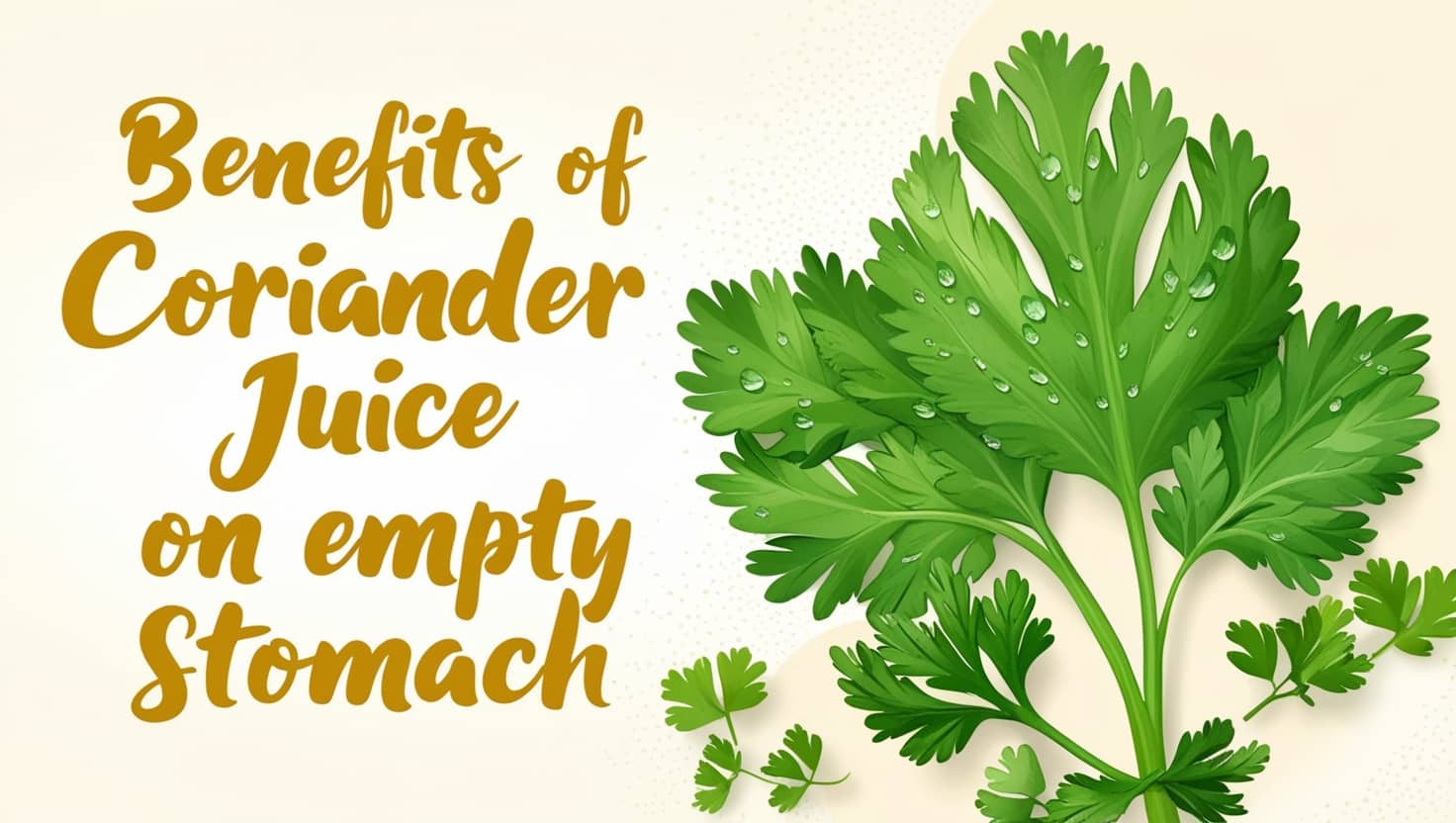One of the most widely used spices in cooking globally is coriander, or Coriandrum sativum (C. sativum), whose therapeutic benefits have been known since ancient times. Bioactive phytochemicals found in C. sativum are responsible for various biological functions. In this article, we will discuss coriander juice’s nutritional profile and health benefits.
What is “Coriander”?
The annual plant C. sativum has white or pink umbellate flowers, a noticeable taproot, and green lanceolate-shaped leaves. It comes from the eastern Mediterranean and is grown extensively in Europe, Asia, and Africa. Because of its distinct flavour and perfume, coriander, also referred to as Chinese parsley, cilantro, phak chee, and dhanya is utilized in both culinary and traditional medicine. The chemical composition of the leaves and seeds gives them distinct fragrances.
The Health Benefits of Coriander
- Since the Greek era, coriander has been utilized in traditional medicine as a diuretic, lipid- and glucose-lowering agent, appetite and digestion stimulant, and antibacterial.
- It has been used to treat inflammatory diseases, respiratory disorders, central nervous system disorders, and digestive issues.
- Because of its strong antioxidant, antibacterial, and antifungal properties, it is often used as a natural food preservative in place of synthetic carcinogenic antioxidants.
Nutritional Profile of Coriander
- It contains a lot of flavonoids, vitamin C, folate, vitamin A, and vitamin B12.
- Essential oils, lipids, and polyphenols have been discovered in seeds and aerial parts.
- Only seeds and aerial sections contain water-soluble components and anthocyanin.
Effect on Digestion and Metabolism
- Anorexia, dyspepsia, flatulence, griping pain, vomiting, sub-acid gastritis, diarrhea, and diseases resulting from delayed gastrointestinal transit, such as indigestion and anorexia, are among the gastrointestinal problems for which it is typically prescribed.
- The seeds can be used for their digestive stimulation, antibilious properties, and stomachic, spasmolytic, and carminative properties.
- Through a cholinergic mechanism, coriander has also been demonstrated to increase the release of stomach acid.
Benefits of Coriander Juice on Empty Stomach
- Blood Sugar Regulation: Coriander juice may lower blood glucose levels and increase insulin secretion, similar to diabetes medication.
- Antioxidant Properties and Implications: Coriander’s antioxidant compounds neutralize harmful free radicals and reduce oxidative stress.
- Anti-inflammatory Effects: Coriander may contribute to potential anti-inflammatory effects.
- Immune-Boosting Properties: Some research indicates coriander may have immune-boosting properties.
- Cardiovascular Health: Coriander extract may reduce blood pressure in anesthetized rats.
- Digestion Benefits: Coriander juice stimulates digestive processes and alleviates gastrointestinal issues.
- Most research on coriander’s digestive health benefits has been conducted in animals or test tubes.
Safety Profile
According to studies, coriander oil’s primary ingredient, linalool, may be the cause of acute oral and cutaneous toxicity in animals. While moderate allergy symptoms are possible in people, severe allergic events are uncommon. As a food and ingredient, coriander is typically safe.
In Conclusion
Sativum, an aromatic plant, has been used in food, fragrance, and medicine since ancient times. Its essential oil is the second most produced globally, making it a significant economic spice. Linalool, a major compound, has CNS properties, antimicrobial activity, and gut-modulatory effects. While approved for food use, further studies are needed on toxicities and long-term therapeutic doses.
References
- Silva, F., Domeño, C., & Domingues, F. C. (2020). Coriandrum sativum L.: Characterization, biological activities, and applications. In V. R. Preedy & R. R. Watson (Eds.), Nuts and seeds in health and disease prevention (2nd ed., pp. 497-519). Academic Press.
- Prachayasittikul, V., Prachayasittikul, S., Ruchirawat, S., & Prachayasittikul, V. (2018). Coriander (Coriandrum sativum): A promising functional food toward the well-being. Food research international (Ottawa, Ont.), 105, 305–323.








